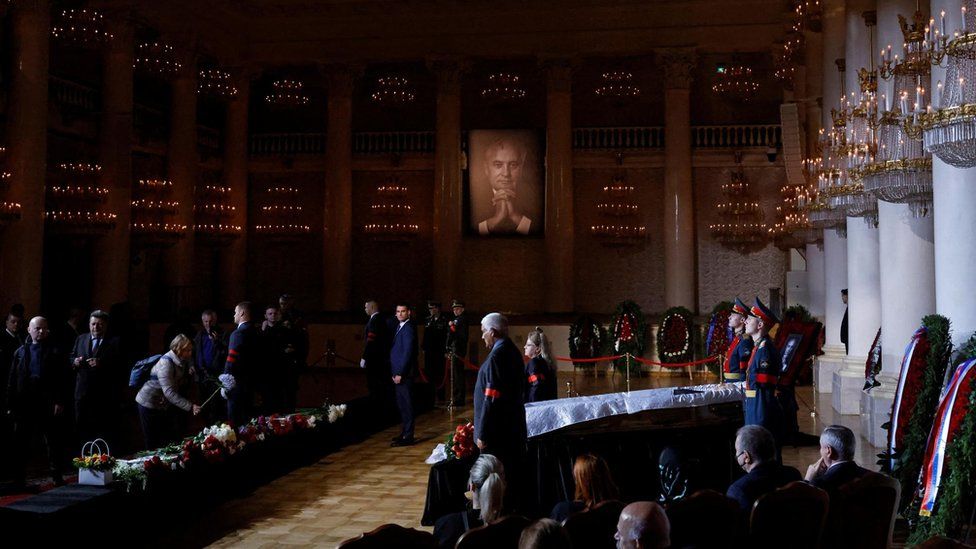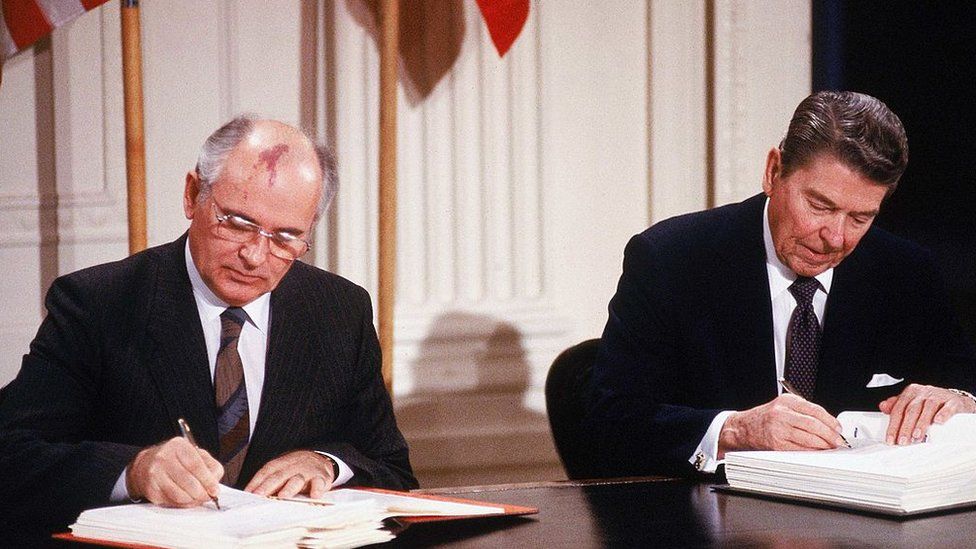The last Soviet leader, Mikhail Gorbachev, to peacefully end the Cold War, is being remembered by mourners in Moscow.
There is somber music playing within the House of Unions’ Columned Hall. On the balcony, a sizable Gorbachev image in black and white is displayed.
In an open casket, the former president is surrounded by a guard of honor.
As they pass by, the people lay flowers. There is a sea of red carnations.
It was here that Gorbachev’s predecessors, Soviet leaders like Lenin, Stalin, and Brezhnev, lay in state, too.
Many Russians blame Mikhail Gorbachev for launching reforms that caused economic chaos and for letting the Soviet Union fall apart.
But in the streets around the Hall of Unions, long lines of Muscovites – young and old – are queuing up to pay their respects.
Liberal politician Grigory Yavlinsky is there and he says: “These people came to Gorbachev to say ‘Thank you Mr Gorbachev. You gave us a chance, but we lost this chance.”
One man who is not here is Vladimir Putin. The Kremlin’s official explanation: No space in his schedule. However, this is widely seen as a snub.
Mr Putin once called the dissolution of the USSR the “greatest geopolitical catastrophe of the century”.
Mr Gorbachev took power in 1985, introducing bold reforms and opening the USSR to the world.
But he was unable to prevent the collapse of the union in 1991, and many Russians blame him for the years of turmoil that ensued.
But Saturday’s ceremony is not a state funeral – a sign that the current Kremlin leadership has little interest in honouring Mr Gorbachev’s legacy.
It was well known that Mr Putin and Mr Gorbachev had a strained relationship – their last meeting was reportedly in 2006.

Most recently, Mr Gorbachev was said to have been unhappy with Russia’s invasion of Ukraine, even though he had supported the annexation of Ukraine’s Crimea peninsula in 2014.
The hospital in Moscow where Mr Gorbachev died on Tuesday said in a short statement that he had been suffering from a long and serious illness. It did not reveal the cause of death.
In recent years, his health had been in decline and he had been in and out of the hospital. In June, international media reported that he had been admitted after suffering from a kidney ailment.
He is seen in the West as an architect of reform who created the conditions for the end of the Cold War in 1991 – a time of deep tensions between the Soviet Union and Western nations, including the US and Britain.
He was awarded the Nobel Peace Prize in 1990 “for the leading role he played in the radical changes in East-West relations”.
But in the new Russia that emerged after 1991, he was on the fringes of politics, focusing on educational and humanitarian projects.
Gorbachev made one ill-fated attempt to return to political life in 1996, receiving just 0.5% of the vote in presidential elections.

